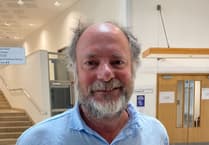Just a decade ago, it was standard practice for councils to spray public spaces. But as evidence of the harm these chemicals cause to both wildlife and human health has grown, nearly half of UK councils are now taking steps to eliminate pesticides from their public spaces.
The second most common way for people in the UK to be exposed to pesticides, after diet, is through spending time in public spaces. The vast majority of pesticides applied in public spaces are herbicides (weedkillers), used to remove unwanted vegetation. The most widely used by local authorities is the weedkiller glyphosate, which makes up at least 90% of the pesticides used in public spaces and has been linked to the development of cancers and other serious diseases such as Parkinson’s. Exposure to multiple pesticides is particularly dangerous for children and can increase the risk of pregnancy complications.
Pesticides have been linked to major declines in wildlife, including birds, bees and hedgehogs. Although weedkillers target plants, they can kill wildlife, particularly insects, and remove plants relied upon by birds, insects and other animals for food and shelter. Their effects are not limited locally as the chemicals run off hard surfaces, contaminating water courses and harming aquatic species.
The largest survey of pesticide use by local authorities in public spaces, conducted by the Pesticide Action Network (PAN), found that 165 out of 368 local authorities – 45% of councils – have taken action to end their reliance on pesticides. Despite this progress, the councils still using pesticides reported spraying 354 tonnes of these chemicals in 2024. Recent polling shows that two-thirds of the UK public supports making schools, parks, playgrounds, playing fields, cemeteries and other public spaces pesticide-free.
There are alternatives available to councils, ranging from traditional methods such as manual weeding to more high-tech solutions such as steam, hot foam and brushing machines. In contrast to herbicides that leave unsightly dying vegetation, these machines not only remove unwanted plants but also clear away other debris, discouraging future growth. Councils can also choose to let certain areas grow wild, creating habitats that benefit both people and local wildlife.
This move towards a pesticide-free future follows a growing trend across Europe. France, Denmark and Luxembourg have already banned urban pesticide use nationwide. Since 2017
pesticides have been banned in all French towns and cities, with a ban in private gardens in 2019. In Paris, pesticides have been banned for seven years, proving that even major cities can maintain their public spaces without relying on harmful chemicals and host events like the Olympics.
With the government pledging to improve public health, clean up rivers and restore nature, phasing out pesticide use in public spaces is a clear and positive step towards achieving all of these aims. By supporting councils in this effort, we can make our communities healthier for ourselves, our children, our pets and wildlife.





Comments
This article has no comments yet. Be the first to leave a comment.